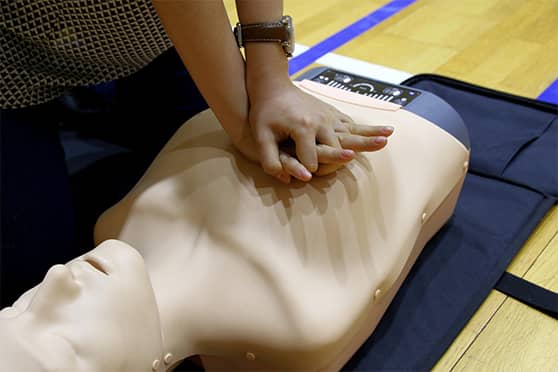MedLern launches innovative, online resuscitation training in India


MedLern, a leading digital learning solution for hospitals and healthcare professionals, has unveiled an innovative, online resuscitation training platform that does not require instructor oversight. Yenepoya (deemed to be University) Mangalore is the first university in India to adopt this programme for training their medical practitioners in BLS, ACLS and PALS. The globally-proven, online programme, HeartCodeComplete is co-developed and powered by the American Heart Association and Laerdal Medical technology.
This programme significantly reduces training time as compared to the traditional instructor-led model. The training is divided into two parts – online, self-paced Cognitive Part 1 and Skills Session on the RQI-P GO Simulation Station. Upon completing both parts, the learner receives an American Heart Association course completion e-Card. RQI-P GO Simulation Stations are portable and can be used by hospitals to train their staff on BLS/ACLS/PALS on their hospital premises rather than them travelling to training centres in different locations. The programme provides consistent training that meets diverse learning needs and features real-time, audio-visual feedback. The programme accommodates the learning style and needs of the learners and they can complete the eLearning portion at their own pace and on their own schedule.
“HeartCode Complete provides healthcare professionals with BLS/ACLS/PALS instruction while being onsite without having to travel to a training facility. The survival rate from sudden cardiac arrest is less than 1% worldwide; through this training programme, cardiac deaths can be reduced by making the hospital staff skilled in resuscitation,” said Deepak Sharma, co-founder and CEO, MedLern.
Gangadhara Somayaji K S, registrar, Yenepoya University, stressed the need to train every medical professional in resuscitation. He said, “The introduction of HeartCode Complete at the Yenepoya Medical College Hospital will help the healthcare workers to apply evidence-based protocols in the treatment of cardiac arrest.”